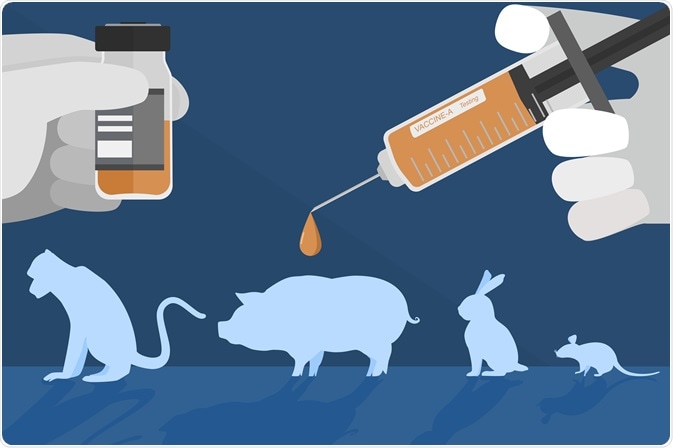Best Suggestions For Choosing Herbal Pet Supplements
Wiki Article
What Are The Most Common Problems With Animals' Health?
The medical problems that animals face can be different according to age, species, and the general health of the animal. Common medical problems in animals include:
Parasitic illnesses- Infections brought on by ticks, fleas, worms and mites cause various diseases. Regular checks and prevention of parasites are vital. Skin conditions such as allergies and dermatitis can cause discomfort and irritation to animals.
Ear Infections - Ear infections are common among dogs and cats, especially those with floppy ears, and can lead to irritation and hearing issues.
Dental Problems: Dental issues such as periodontal disease, tooth decay, and gum infections may affect an animal's overall health.
Respiratory Infections Respiratory Infections: Upper respiratory infections, such as pneumonia, bronchitis and bronchiolitis can be found in animals, especially those that live in stressful or overcrowded environments.
Joint and Arthritis Issues Many animals who are older, such as some large breeds of dogs, are susceptible to joint and arthritis issues. These can result in an increase in pain and reduced mobility.
Obesity. Dogs who are overweight are more susceptible to heart disease, diabetes, arthritis and other health problems.
Gastrointestinal Problems- Dietary issues, infections or other issues can cause vomiting, diarrhea and digestive issues.
Cancer: Humans and animals are both susceptible to developing cancer. Treatment options could include radiation, chemotherapy or surgery.
Wounds & Injuries - Injuries and wounds from fights, accidents or falls can cause soft tissue injuries such as fractures. This requires medical treatment. Regular veterinary examinations, vaccinations against parasites, as well as a balanced diet, will help prevent these conditions. Also, seek prompt medical attention if your pet exhibits any symptoms of illness or discomfort. Take a look at the most beautiful pet wellbeing australia for blog advice.

What Are The Best Supplements, Vitamins And Probiotics For Dogs?
It is crucial to take into consideration the specific requirements of your dog as well as the advice of a vet when selecting supplements, probiotics, or vitamins. While it is important to provide a balanced and healthy diet to your dog, certain might benefit from supplementing their diet with supplements. Here are a few common supplements that your dog could benefit from and their possible benefits:
Multivitamins - A high-quality dog food will provide all of the essential vitamins and minerals your dog needs. If your dog is suffering from restriction on diet or requires assistance, the multivitamin could be beneficial. If you're offering your pet a vitamin supplement, make sure that it is specifically formulated for them. A high dose of certain vitamins may cause toxic effects. Omega-3 Fat Acids: Omega-3 acids like fish oils are able to improve the health of your skin and hair help reduce inflammation and improve joint health. They are commonly suggested for dogs with allergies, skin issues, and arthritis.
Probiotics are beneficial microorganisms which help support digestive health. They do this by ensuring a healthy equilibrium in the microbiome of your digestive tract. They are typically used for problems with digestion, such as diarrhea, as well as to boost the immune system.
Glucosamine and Chondroitin - These two supplements can be utilized to reduce symptoms of arthritis and support joint health in dogs.
It is essential to speak with your vet prior to giving your dog any kind of supplement and as they will provide guidance tailored to your dog's specific requirements and circumstances. The health of your dog, its age and size can affect the dosage. Too much supplementation could cause harm. It's also important to select supplements from manufacturers you trust. See your veterinarian right away in the event of any suspicious signs or reactions. A well-balanced and veterinarian-recommended diet is typically the best way to meet your dog's nutritional needs, and supplements should only be used when necessary and under professional guidance. The best of the best pet herbal supplements for dogs with kidney problems for website info.

What Is The Prevalence Of Yeast Infections, Skin Allergies And Kidney Failure? What Are The Treatments?
These conditions can be affected by dogs in a range of ways, based on their breed, age, overall health and more. Here's a brief overview of each condition that is prevalent, as well as possible treatment options.
Yeast infection: The prevalence. Yeast is relatively prevalent in dogs. This is especially true for areas like the paws and ears. The infections are more common in breeds like Bulldogs or Shar-Peis with skin folds.
Symptoms: Symptoms include itching, redness, foul odor, and discharge. Head aches or shaking is an ear-related symptom that is common to infections.
Treatment: The procedure involves fixing the root cause like skin folds or allergies using antifungal creams and topical treatments, in some cases oral antifungal drugs. It is crucial to maintain good hygiene.
Not all dogs will suffer from these issues. Additionally, their prevalence varies according to breed and. Regularly scheduled veterinary examinations and a balanced diet and preventative measures like flea control and proper sanitation could help reduce this risk. Consult your veterinarian if you believe your dog may have a medical problem that could be causing kidney issues, skin allergies or yeast infections. A veterinarian can offer an accurate diagnosis and an individualized treatment program. Early intervention could improve the quality of life of your pet and result in better outcomes. Check out the best pet herb blends for website advice.
